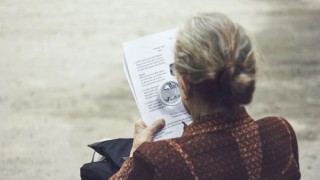A surprising — and in many ways, quite alarming — new study published in Dermatology Times has dermatologists the world over reconsidering some fundamental theories about skin health.
The journal article suggests that the negative effects of air pollution on the skin can “undo” the positive effects that can be obtained by adopting a healthful exercise and diet regimen. Dr. Wei Liu examined associations between pollution in the Chinese city of Beijing and the appearance of dermatological problems. Dr. Liu and his collaborators examined data from 15,000 patients from around the Beijing area between 2013 and 2014.
He told Dermatology Times “our initial study showed a positive correlation between [the values of certain air pollution particulates] and the numbers of urticarial outpatients in Beijing… when the [particle level] is above 200 micrograms per cubic meter, the correlation starts to be stronger than in the lower level.
Also, there is a lag effect… on urticarial outpatient number, which can last up to 20 days… Further studies are needed, but for dermatologists and their patients, it’s becoming more and more important to acknowledge the influence of air pollution on skin diseases and take this influence into consideration while providing treatment suggestion, such as thorough and gentle cleansing and skin barrier repair.”

Dr. Liu’s study and others like it have set off alarm bells in the dermatology community. After all, most people are concerned enough about their skin health already – they’re not looking for yet another factor to create stress.
In conjunction with Dr. Liu’s research, Dr. Frauke Neuser just finished a 12 month clinical study of 200 women in the most polluted regions of Beijing. Dr. Neuser found that women who lived in more polluted areas of the city had poorly hydrated skin and function of the skin barrier. Dr. Neuser told Dermatology Times: “our finding that something as fundamental to skin’s health as hydration barrier function can be compromised by continued exposure to air pollution is therefore highly significant.”
The silver lining, if there is one, is that most areas in the United States are far less polluted than Beijing. It’s highly unlikely that anyone in Colorado – even in the most urban sections of Boulder and Denver – are regularly exposed to pollution levels on anything near the scale of Beijing’s pollution. Nevertheless, it’s reasonable to assume that particulate pollution can play a non-negligible role in the development of certain dermatological conditions, particularly over the long term.
Chronic exposure to certain types of air pollution could, in theory, challenge the immune system and lead to rashes, eczema, and the development of more serious problems.
Perhaps the dangers associated with this kind of exposure could be blunted with a more proactive skin care regimen. Certain types of particulates could cause more problems than others. More study is needed, particularly at the clinical level.
To protect your skin, find and work with a qualified dermatologist who can give you insights into your needs. Call the Mountain View Dermatology team today at 303-444-3152 to schedule a consultation and protect your skin and ensure vibrant health going forward.
This is a guest post by the boulder dermatology office of Mountain View Dermatology – A company offering a wide variety of skin care services including varicose vein removal.



